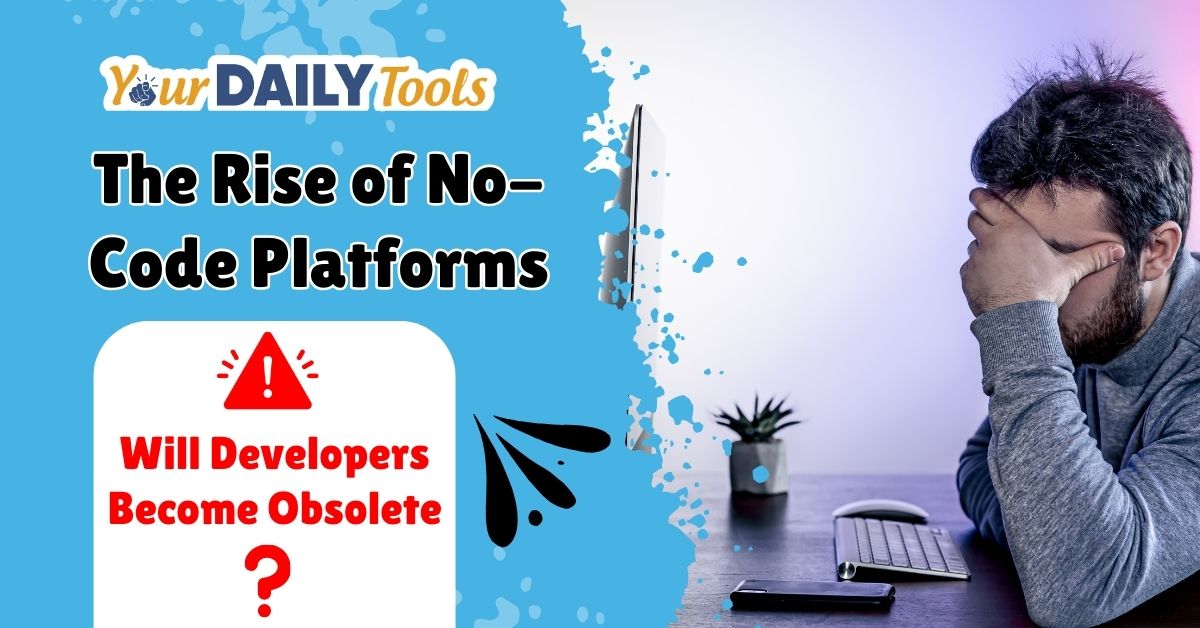The Rise of No-Code Platforms: Will Developers Become Obsolete? | YourDailyTools Blog

No-code platforms are revolutionizing the way software is developed, allowing individuals and businesses to create applications without writing a single line of code. But does this mean developers will become obsolete?
In this article, we explore the rise of no-code platforms, their benefits, challenges, and whether they truly pose a threat to traditional developers.
What Are No-Code Platforms?
No-code platforms enable users to build applications through visual interfaces, drag-and-drop components, and pre-built templates. They eliminate the need for coding knowledge, making software development accessible to entrepreneurs, small businesses, and non-technical users.
Popular no-code tools like Bubble, Webflow, and Zapier allow users to create websites, automate workflows, and build complex applications with minimal effort.
Why No-Code Platforms Are Gaining Popularity
The rise of no-code platforms is driven by several key factors:
- Faster Development: No-code tools enable rapid application development, reducing the time required to bring ideas to life.
- Cost-Effective: Businesses can save money by reducing dependency on expensive software developers and technical teams.
- Empowers Non-Developers: Entrepreneurs, marketers, and business owners can build and manage applications without hiring developers.
- Scalability: Many no-code platforms now offer robust scalability, allowing businesses to start small and expand as needed.
- Innovation and Accessibility: No-code bridges the gap between ideas and execution, encouraging more people to innovate without technical barriers.
Will No-Code Replace Traditional Developers?
Despite their advantages, no-code platforms have limitations. They may not offer the flexibility, security, or customization required for complex enterprise applications. Developers are still needed for:
- Custom Development: No-code tools have predefined functionalities, but developers are essential for building custom solutions.
- Security and Performance Optimization: Large-scale applications require deep technical expertise in performance tuning and security.
- Integration with Existing Systems: Many businesses need custom integrations that no-code platforms may not support.
- Advanced AI and Machine Learning: No-code cannot yet match the complexity of AI, data science, and backend engineering.
The Future of No-Code and Traditional Development
Rather than replacing developers, no-code platforms are likely to complement their work. Developers can leverage no-code tools to automate repetitive tasks, build prototypes faster, and focus on high-level architecture and innovation.
The future of software development may be a hybrid model where no-code is used for rapid development, while skilled developers handle complex, custom, and performance-critical applications.
Ultimately, no-code platforms are here to stay, but developers will continue to play a crucial role in shaping technology’s future.

